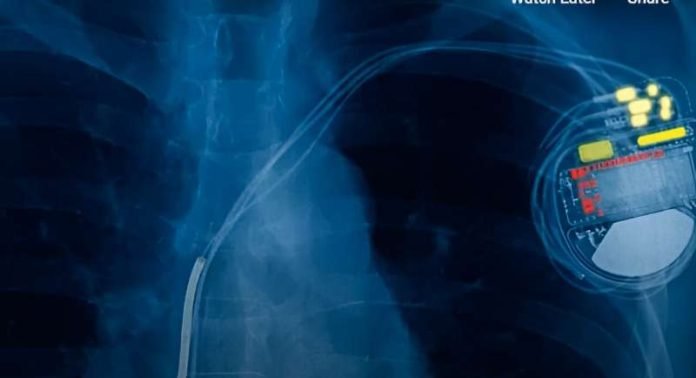
Researchers at the University of Chicago have made a big advancement in medical technology by creating a new type of pacemaker that’s powered by light and significantly smaller and less intrusive than current devices.
This innovative device, designed to regulate heart or neural activity, is so small and light it can be implanted through minimally invasive surgery, and it dissolves over time, eliminating the need for removal.
The technology behind this device is inspired by photovoltaics, similar to those used in solar cells, but with a crucial adaptation to localize its activation to specific areas of tissue.
This precision is vital for therapies like cardiac resynchronization, which requires targeted stimulation to synchronize heartbeats without the complications associated with traditional wired systems.
This featherlight, flexible membrane is just one micrometer thin and can be inserted alongside a tiny optic fiber that powers it.
The device’s design features two layers of silicon with nanoporosity to enhance electrical performance and concentrate electricity where light is applied, without letting it spread, ensuring targeted therapy.
The potential applications of this technology extend beyond heart therapy; it could revolutionize treatments for neurological conditions, chronic pain, and movement disorders by offering a new form of neuromodulation termed ‘photoelectroceuticals.’
This breakthrough represents a significant leap forward in bioelectronics, promising to integrate seamlessly with the body’s functions and offering a glimpse into the future of medical treatments.
If you care about heart health, please read studies that vitamin K helps cut heart disease risk by a third, and a year of exercise reversed worrisome heart failure.
For more information about heart health, please see recent studies about supplements that could help prevent heart disease, stroke, and results showing this food ingredient may strongly increase heart disease death risk.
The research findings can be found in Nature.
Copyright © 2024 Knowridge Science Report. All rights reserved.



